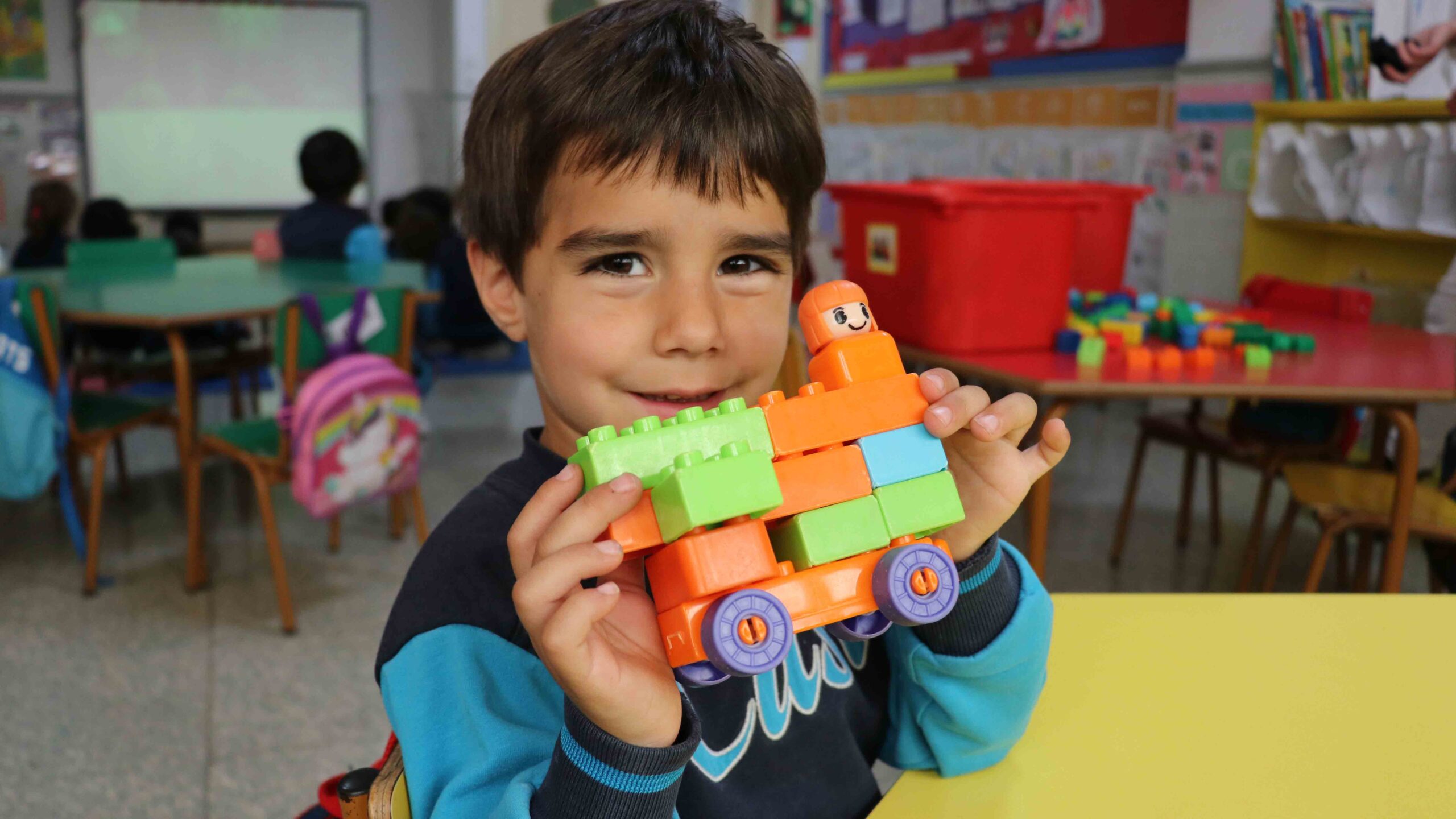As parents, one of the most important decisions is to choose the games and toys that will accompany our children as they grow up. But how do we know which educational toys are the most suitable for their age? This choice may seem simple, but it has a direct impact on the emotional, cognitive and motor development of the little ones.
THE CHALLENGE OF CHOOSING THE RIGHT TOYS
A common concern is buying toys that end up gathering dust, do not stimulate the child’s skills or, worse, are unsafe. According to a Harvard University study, 60% of parents are unaware of how educational games can enhance children’s learning and development.
If we do not select the right games, we could be missing valuable learning opportunities for our children.
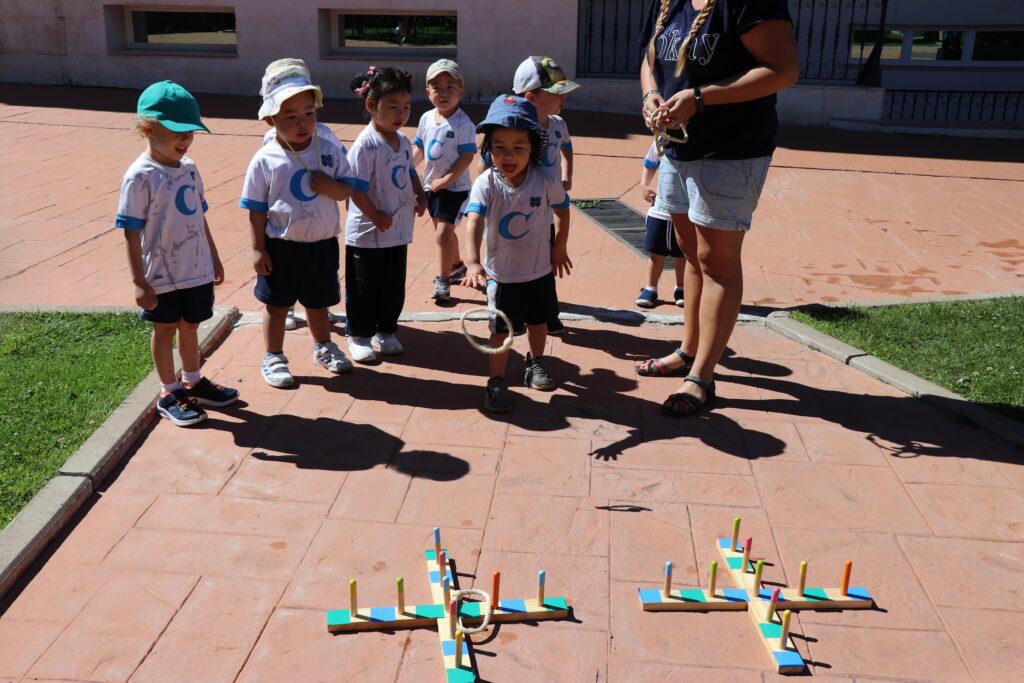
THE IMPORTANCE OF EDUCATIONAL TOYS AT EVERY STAGE
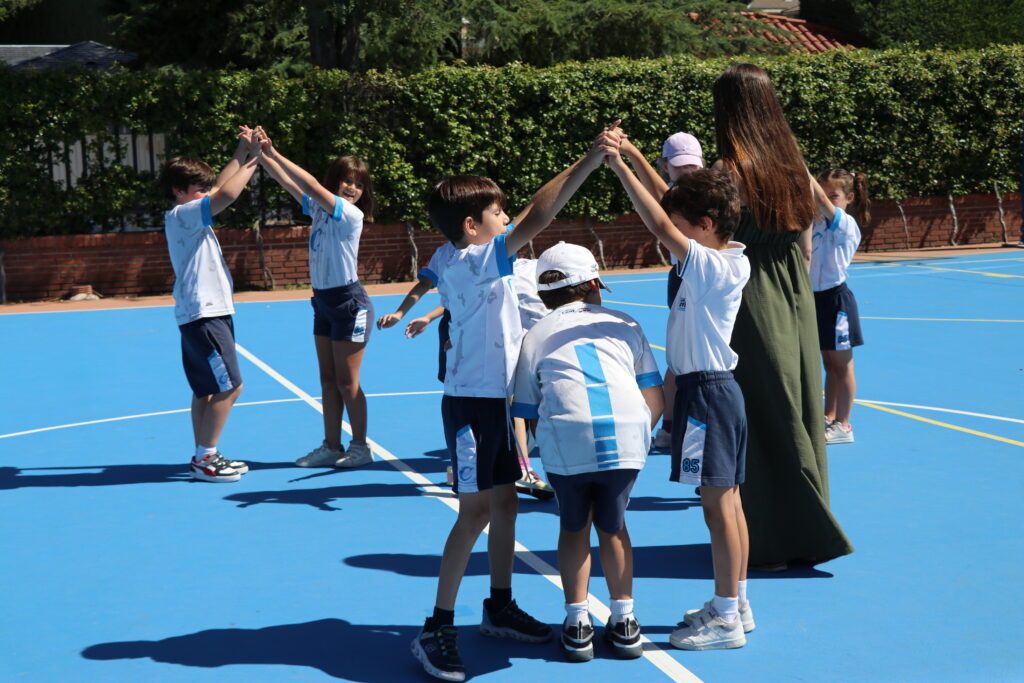
Play is not just entertainment. It is a key tool in children’s development. Several studies, such as the one published by the American Academy of Pediatrics, highlight that educational games stimulate essential areas of the brain, foster creativity, strengthen social skills and improve motor skills.
However, not all educational toys are the same and do not have the same impact. Choosing the right toys for the right age is essential to maximise their educational potential. For example:
- A toy that is too advanced can frustrate a baby or toddler.
- Too simple a game can be boring and fail to provide a meaningful challenge.
Understanding the needs of each stage of development is therefore crucial.
HOW TO CHOOSE THE BEST EDUCATIONAL TOYS FOR EACH STAGE
Here is a practical guide, based on research and the experience of our early childhood education experts.
1. Babies (0-1 year): Discovering the world
At this stage, babies are exploring their environment through their senses. Toys should be safe, with bright colours and varied textures to stimulate their curiosity.
Recommendations:
- Educational toys for babies such as teethers, soft blocks or rattles.
- Games with recycled materials: sensory bottles filled with water and glitter, fabrics of different textures.
Benefit: Promotes sensory development and fine motor skills.
2. Toddlers (1-2 years): Mobility and coordination
At this age, children begin to walk, explore and manipulate more complex objects. Play should encourage motor development and problem solving.
Recommendations:
- Educational toys for 2 year olds: stacking towers, nestable or pull and push toys.
- Sorting games: by colours and shapes.
Benefit: Improve hand-eye coordination and gross motor skills.
3. Pre-school (3-5 years): Imagination and structured learning
Children at this stage are ready for games that promote social skills, creativity and more logical thinking.
Recommendations:
- Educational toys for 3, 4 and 5 year olds: puzzles, construction games such as LEGO, play dough and drawing materials.
- Role-playing games such as kitchenettes, toy tools or costumes.
Benefit: Develop creativity, language and problem-solving skills.
4. Beyond educational toys: family games
Educational games do not always require a financial investment. Activities such as creating crafts with recycled materials or playing board games as a family also strengthen bonds and skills.
Bonus tip: Remember that less is more. According to a study by the University of Toledo, children who have fewer toys tend to concentrate better and be more creative.
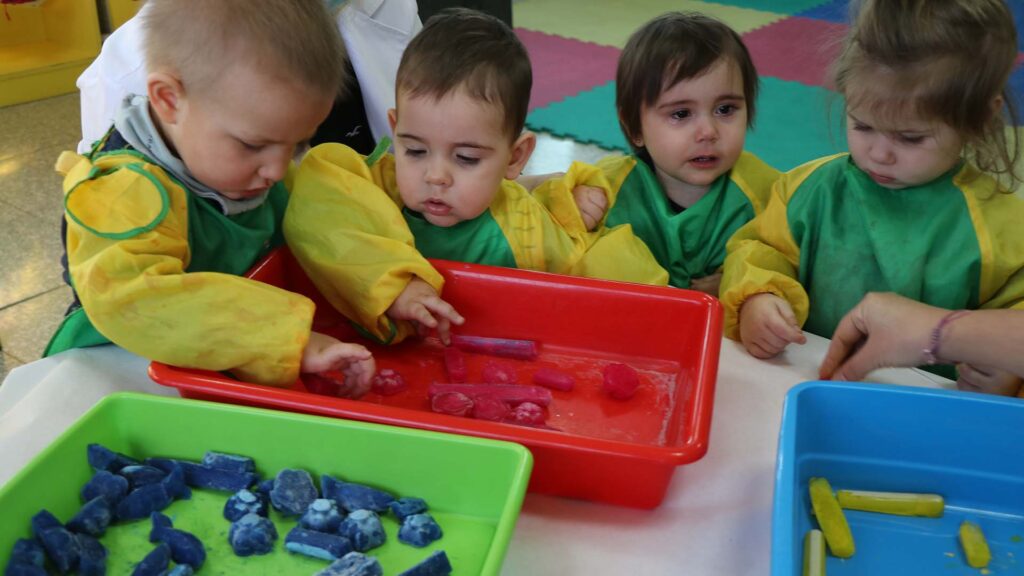
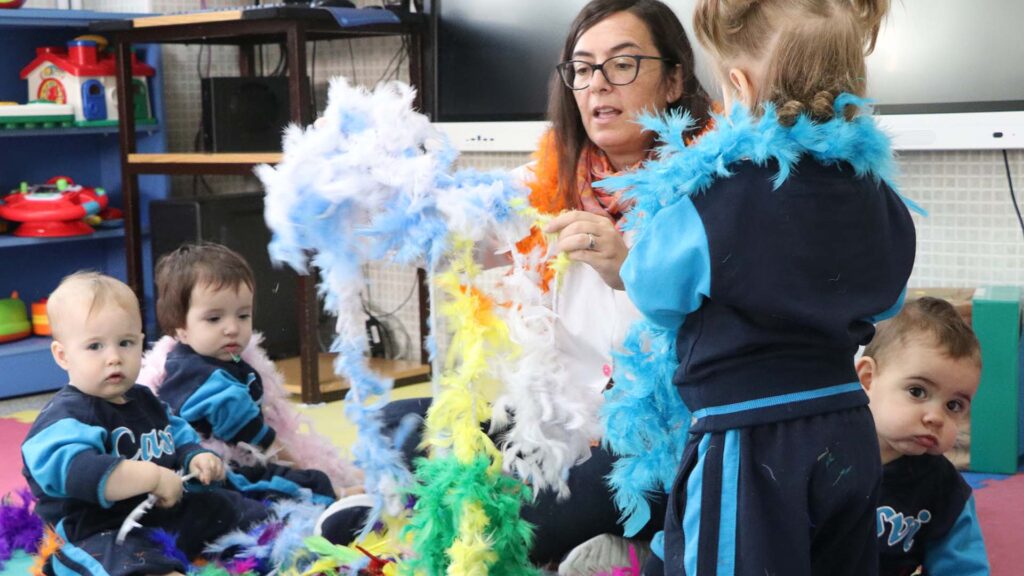
“El niño debe tener tiempo para jugar libremente, incluso aburrirse, porque eso hace que el cerebro haga conexiones sobre tomar decisiones en lo que realmente le gusta hacer”.
THE CASVI VILLAVICIOSA MODEL: LEARNING BY PLAYING
At Casvi Villaviciosa International Private School, we understand that play is an essential part of children’s learning. For this reason, we integrate educational games in all school stages. Thus, our pupils participate in activities designed specifically for their age and development.
Moreover, in the International Baccalaureate (IB) methodology, the cornerstone of Casvi Villaviciosa’s educational model, play is not just a recreational activity. It is a powerful pedagogical tool. Through playful dynamics, pupils develop critical skills such as creativity, problem solving and teamwork.
In addition, the game encourages active learning, allowing students to explore complex concepts in a practical and meaningful way. This methodology transforms the classroom into a space of discovery, where curiosity and motivation drive learning.
In short, at Casvi Villaviciosa, play is strategically integrated to form global leaders with an open and resilient mentality.
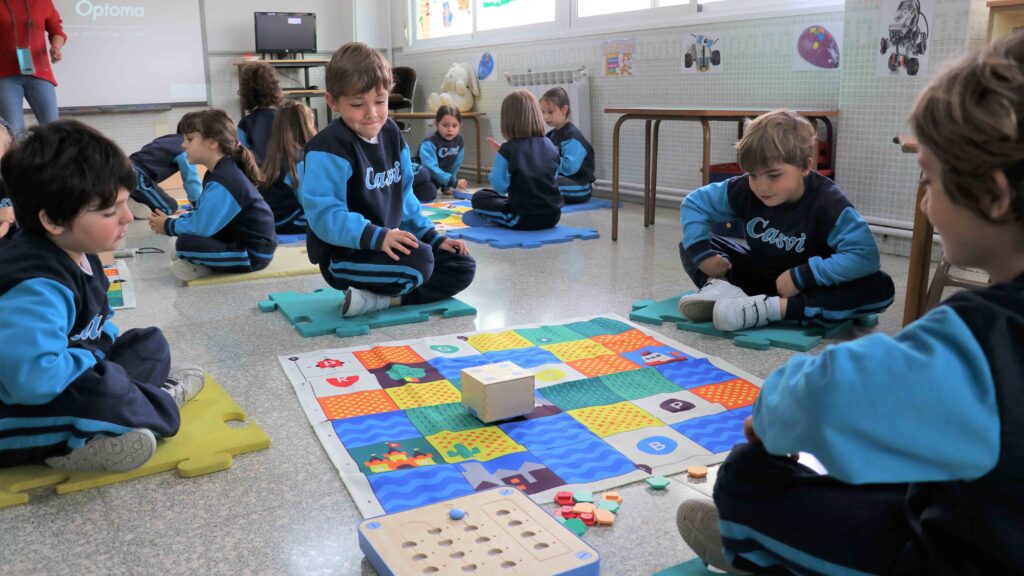
“Playing is our brain’s favourite way to learn”.
FIND OUT MORE ABOUT OUR METHODOLOGY
At Casvi, we not only teach, we also build futures. If you want to know how we apply these strategies in our classrooms and how we can help you enhance your child’s development, click here and discover why we are a benchmark in innovative education.

